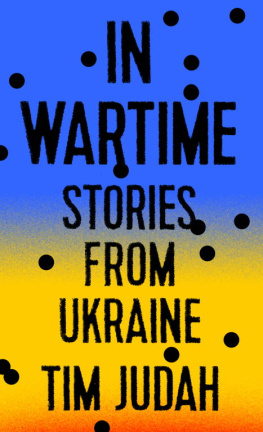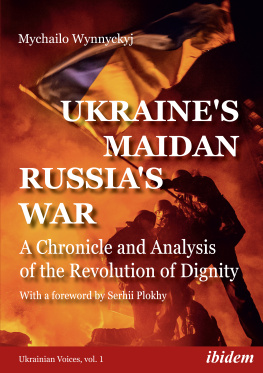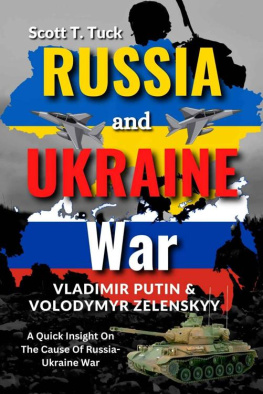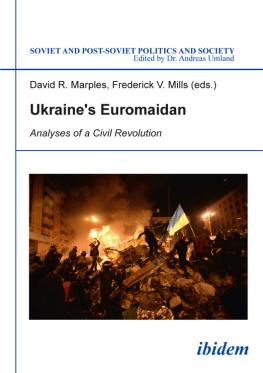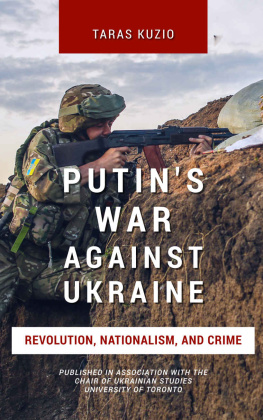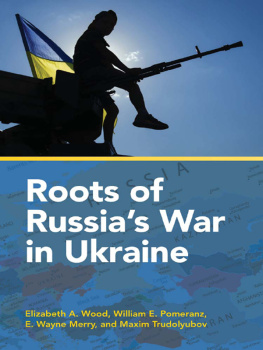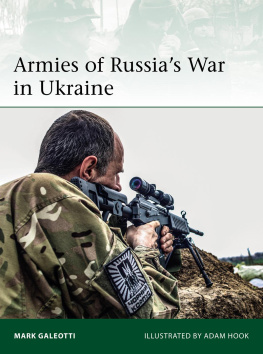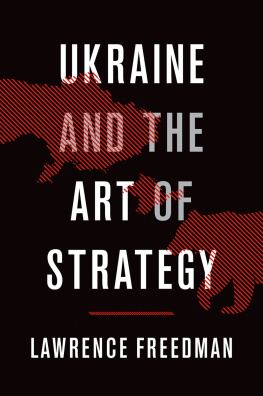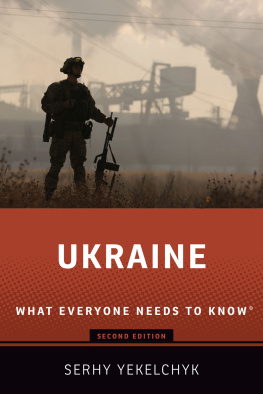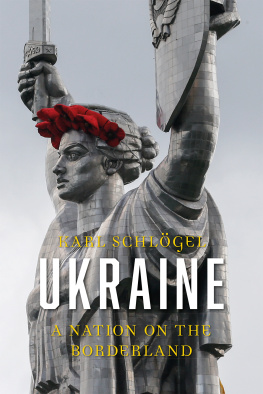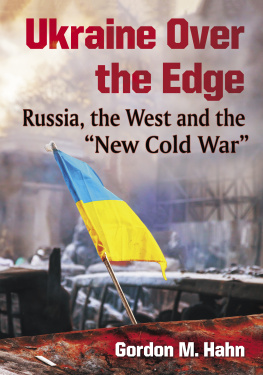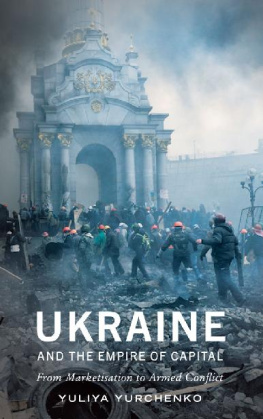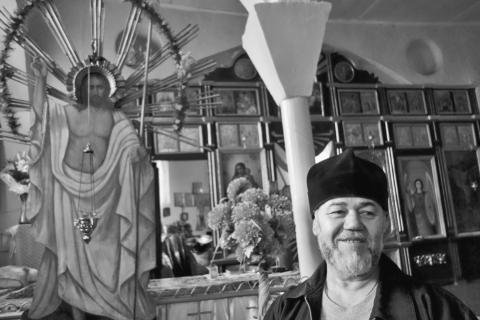Bones of Contention
In the center of Tatarbunary, a couple of hours drive south-west of Odessa, there is a classic Soviet-era memorial. One man holds a flag aloft, one crouches with a rifle and one brandishes a pitchfork. It commemorates the Tatarbunary Uprising of September 1924, when a group of locals, with covert Soviet help, organization and arms, rose up against Romanian rule. The leader went under the nom de guerre of Nenin. Once he and his men had seized the town, he summoned the locals and, standing on a table taken from the town hall, proclaimed the founding of a Moldovan Peoples Republic. Red flags were raised. Tatarbunary was a good place to start the revolt because much of the population was Ukrainian or Russian and resented the governments policies of Romanianization. The region had been under martial law since its annexation in 1918. So, when Nenin told people that the Soviet cavalry was on the brink of entering Bessarabia, many rallied to the call. Within a few days it was all over. At first the police summoned help from a posse of some forty Bessarabian Germans from the nearby town of Sarata and then Romanian troops arrived to finish off the revolt. Some 500 were arrested, 279 put on trial and the following year 85 were convicted.
The Tatarbunary Uprising was not the only one egged on by the Soviets in Bessarabia in these interwar years, but many of their other plans fizzled out completely. Still this history does give pause for thought. In the West these events can seem like very obscure historical details. But, if you are in Moscow and thinking about how to destabilize Ukraine, all this is part of the textbook, the back catalogue. One account of the uprising in English was published in 1927 by Charles Upson Clark, an American academic who knew Romania and Bessarabia well. He wrote that the region was:
honey combed with revolutionary organizations financed and directed from Soviet Russia. These exploited the post-war economic and political difficulties of the country, the mistakes of the new regime, all forms of discontent, intensified by financial stagnation and the drought; and indiscreet or corrupt Roumanian officials played into their hands.
And so, in our times, the story repeats itself. Modern Ukraine is similarly honeycombed with organizations and individuals tied in one way or another to Vladimir Putins Russia, whose authorities have exploited the dire economic and political situation created by Ukraines venal and corrupt politicians, giving those who look to Moscow a source of succor and support.
Today cars and trucks speed through Tatarbunary, which lies on either side of the road between the Danube port of Izmail and Odessa. People stop here for a meal or drink at the modest hotel just out of town which, over the Christmas period, displays over the porch an illuminated model of reindeer whose heads slowly move this way and that. Horses and carts trot past the 1924 memorial. On the other side is an ordinary building on the corner of the street with a metal onion-style dome atop a mini-steeple. It is the church of Father Vasily. It is an unusual place because it was not built as a church. Vasily is Gagauz and was a priest in Izmail for fifteen years, and his wife was Ukrainian, from Tatarbunary. She wanted to come back and did so with their four children. I decided that nobody would feed or dress them or give them an education, so I left my church and came here. Then he found this building and said, God, if you will it, let it be a church.
Religion in Ukraine can be complicated. The mainstream Orthodox Church is divided between the Moscow Patriarchate and the Kiev Patriarchate. There is also the Ukrainian Autocephalous Church, founded in 1921, and the Greek Catholic Church, which is part of the wider Catholic community but draws on Orthodox rites and traditions. Most priests in this region belong to the Moscow Patriarchate.
Father Vasily. Tatarbunary, December 2014.
Wanting to open his new church, Vasily went to his bishop, whom he described as an agent of Moscow, and said: If you dont give me permission I will go to Kiev. The bishop said, Calm down, GagauzI know you people have hot blood. Vasily replied that there was someone with higher rank than him and went to Kiev to seek a blessing. But he could not get it there either. A scandal ensued, as he proceeded to open his own church unaffiliated with either patriarchate but, miracle of miracles, people in town began to arrive with icons, crucifixes and other religious artefacts, many of which they had kept hidden during the Soviet period and some of which had been saved from churches that had been destroyed. I did not buy anything, he said enthusiastically. There was an old man who, when he was younger, had had the job of shoveling coal into the furnace of a heating system, he said, pointing at a fine large image of Christ with a radiating golden halo. One day stuff from a church was brought in and he was told to shove it all in the fire. He burned the first item but, realizing no one was looking, he hid three more under piles of straw. Sometime later, a few years after the end of the Soviet Union, when Vasily opened his own church, the old man rescued the items from their hiding place, put them on a cart and brought them to him.
For those who go to church, their priest can be an influential figure, even telling them whom to vote for. During the 2010 presidential election Vasily said the other priest told his flock to vote for Yanukovych because he would be an Orthodox president. The other priest was clearly more influential. In this area, over 80 percent voted for Yanukovychs Party of Regions. Now, says Vasily, we see that part of the population is for Russia and part for Ukraine, and that is the same for Gagauz too.
Up the street and round the corner, you come to the office of local ecologist and political activist Iryna Vykhrystyuk, who is forty-six years old. It is easy to find because it has solar panels on the roof and flies a Ukrainian flag. Iryna, blue-eyed and determined-looking, has about as deep roots as you can get around here. One branch of her family descends from Cossacks who settled in Tatarbunary in the 1790s. Some of her relatives took part in the uprising of 1924. It failed, she remarks tartly, because the help they expected to come from Odessa never arrived.
It is December and in the office of her organization, Vidro-dzhennia, which means Renaissance, there are Christmas cards made by children, to be sent to soldiers on the front. They say things like Stay away from evil, May God protect you and We are waiting for you with victory. Iryna has three sons, one of whom is fighting. He is a volunteer with the army, not with one of the many militias that have sprung up. At first the army refused to take him because they had not mobilized him, but he and others who were in a similar situation protested and the army relented.
Now Iryna is doing what she can to support Ukraines soldiers, and before that she supported the Maidan protests against Yanukovych, but much of her activist life since 1996 has been devoted to reversing the ruinous legacies of Soviet policies on the local ecology. What is stunning though is that so long after the collapse of the USSR she and her colleagues have not succeeded. The reasons for this are vested interests and corruption, a classic tale which, replicated thousands of times in different ways across Ukraine, does much to explain how the country has been reduced to such dire straits.
Tatarbunary, which means Tatar Wells, sits at the top of the 210-square-kilometer Sasyk liman, the lagoon-cum-estuary that runs out to the sea. At the mouth of Sasyk, as with neighboring limans
Next page
